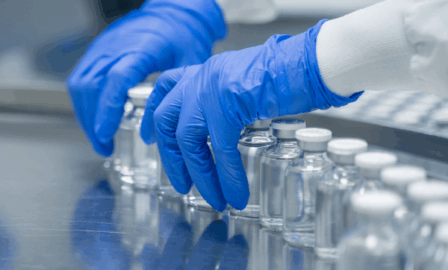Best Practices in Traceability: Lessons the Food Industry Can Learn from Pharma
The pharmaceutical industry has helped lay the foundation for best practices in traceability. As the food industry prepares for enhancements to FSMA 204, Angela Fernandez with GS1 US and Michael Marrone, director at Clarkston Consulting, recently presented a roundtable discussion at FoodLogiQ’s reCONNECT 2022 on the ways that the food industry can apply lessons learned from FDA regulations in the pharmaceutical industry.
Best Practices in Traceability
Regulations surrounding traceability and supply chain visibility have been an integral part of the pharmaceutical industry for years. From medical device identification to tracking pharmaceuticals, the FDA has implemented guidelines for compliance and encouraged the use of systems to track materials through the supply chain – all in efforts to ensure patient safety. Additionally, harmonization efforts and good data governance practices within pharma have allowed successful industry-wide adoption of regulations, in turning supporting the overall efforts to maintain a secure global supply chain. These factors, combined with advancements in technological solutions, have truly enabled the pharma industry to lay the foundation for best practices in traceability.
Recently, there’s been a push for instituting and adopting new regulations and guidelines in the food industry, particularly as consumer demand for transparency, visibility, and traceability continues to increase. As food companies prepare for and adapt to these evolving regulations, the industry as a whole can look to pharma for best practices in traceability and considerations surrounding serialization efforts in a global food supply chain.
Importance of Master Data
Serialization is about providing data that supports compliance for data traceability and authentication. As such, master data is key in a global and complex supply chain. In pharma, one missing letter has significant implications as the product moves down the supply chain, potentially leading to a misidentified product. Master data is key to protecting product integrity and quality, mitigating risk, and ensuring regulatory compliance – not to mention, it also enables your company to maintain trust from the patient.
In the food industry, in particular, good data is at the heart of your tracking and traceability efforts. From farm-to-end, having data that allows you to pinpoint a product at any point in the supply chain to make quick decisions when faced with a recall or outbreak. If your data is inaccurate or missing, you hinder your ability to act swiftly and put your brand – and the consumer – at risk.
Good Data Governance
Collecting and maintaining your data is just one step to best practices in traceability and serialization. Once you have your data, what do you do with it? Who manages it? Is the data readily accessible and available when it’s needed? It’s crucial to have good data governance practices in place for better harmonization, effective decision-making, and greater efficiency across the board.
As food companies look to meet compliance and uphold data-driven transparency, they must establish and maintain good data governance practices, ensuring that product data is accurate, consistent, and of the highest quality. After all, at the end of the day, your data is integral for informing your traceability efforts.
Investment in Technology
The technological advancements and solutions in place for pharma companies has enabled the industry to successfully navigate serialization and traceability and ensure compliance. However, investing in these technological solutions can be an expensive endeavor. Oftentimes, start-up pharma companies have significant capital and investments, and in turn, the resources to invest in robust solutions for their traceability and serialization efforts. For pharma – and life science supply chains as a whole – the existence of a global, digital network have created a notable foundation for capabilities in traceability and authentication, in turn supporting larger efforts of supply chain security and safety enforcement.
So, how can that be applied in the food industry? First and foremost, companies small and large need to understand how critical it is to be able to track your product from farm to end, particularly in a global food system that is vast and complex. With the right technology solutions and systems in place, traceability and supply chain visibility can be made much more manageable. Tech-enabled traceability – one of the tenets of the FDA’s New Era of Smarter Food Safety – can provide companies with the means to create a safer, traceable food system. As consumers continue to demand transparency and visibility – coupled with evolving government regulations and guidelines – brands must consider an investment in the right solutions to meet their traceability needs.
Conclusions on Best Practices in Traceability
The pharma industry has established a solid foundation of traceability best practices for what it takes to accomplish true visibility, from good data and data governance to investing in the right technology solutions. And now, as consumers continue to place an increased focus on true tracking and traceability for their food, that solid foundation can provide guidance for companies in the food industry.
Beyond good data practices and the right technological solutions, though, is another key consideration for companies in the food industry preparing for FMSA 204 and evolving guidelines: communication and collaboration. Every food company is working toward meeting industry compliance by 2023. As such, sharing with and learning from other companies and/or advocacy groups within the food industry is a huge opportunity – and it doesn’t take a plethora of resources.
Borrowing on decades of regulatory experience with our life sciences’ clients, we help CPG companies successfully meet new traceability and labeling requirements and strengthen brand trust, without interrupting operations. Ensuring visibility from raw material source to the consumer gives the insight needed to stay ahead of both government and consumer standards. If you’re looking for guidance in the regulatory and compliance space, our team of experts have a wealth of experience in helping companies with their serialization and traceability efforts – contact us today.



